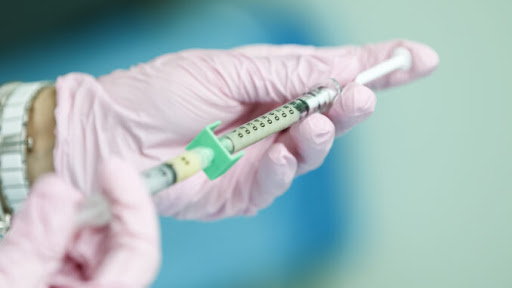Pfizer, Moderna and AstraZeneca Reach COVID-19 Vaccine Breakthroughs

Photo Courtesy of Creative Commons
All potential COVID-19 vaccine contenders must pass three phases of clinical trial before being submitted for approval to the FDA and CDC. Out of eight companies in the United States receiving government funding and dozens more worldwide, Pfizer, Moderna and AstraZeneca have emerged in recent weeks with a successful vaccine through all three phases.
Update 12/11: On Dec. 11, the Pfizer and BioNTech vaccine was authorized for emergency use by the FDA for individuals 16 years of age and older. Distribution will begin within several days.
–
After months of global uncertainty and frantic scientific innovation, pharmaceutical and biotechnology company Pfizer Inc. and its German partner BioNTech reported 95 percent effectiveness of its vaccine on Nov. 9. Moderna vaccine similarly reported a 95 percent effective vaccine on Nov. 16, and AstraZeneca reported 90 percent on Nov. 23, according to CNN Health.
Operation Warp Speed is the Trump administration’s government partnership with private companies to accelerate the development of vaccines with the goal of distributing 300 million safe vaccines by January 2021, according to HHS.gov.
“The president and the executive branch control numerous government agencies that regulate health, such as the CDC, which has been active trying to get testing and guidance out to states and local governments on how to manage the effects of COVID-19… and the FDA, which certifies the safety of medications and vaccines,” IVA social studies teacher Daniel Hunter said.
Pfizer and BioNTech submitted their vaccine for approval to the FDA on Nov. 20, according to a press conference from Pfizer. The FDA is expected to reach a decision as early as Dec. 10, and if approved, distribution will begin within 48 hours.
Moderna submitted its vaccine for approval on Nov. 30, with the FDA expected to make a decision by Dec. 17 and distribution to begin on Dec. 21 if approved, according to the New York Times.
According to The Washington Post, the CDC requires that the vaccine be administered to those at highest risk first. This group includes roughly 200 million people, including front-line healthcare workers, first responders, essential workers, immunocompromised patients and the elderly.
“As someone who has asthma and two parents who are at high risk, a vaccine would bring a sense of safety and normalcy which would allow me to worry less about the health of my family and focus on more on school again,” senior Ali Dada said. “Having to worry about that along with the safety of my family plus college applications has put a lot of unnecessary stress on my mind.”
For the rest of the public, a vaccine may not be readily available until spring 2021. According to The Washington Post, although the federal government plans to make the vaccine free to all Americans, state and local officials remain underfunded in transportation to remote areas and training for healthcare officials to administer the vaccine.
“Tens of millions of dollars are needed for this work in our county and state,” Seattle health official Jeff Duchin said in an interview with The Washington Post. “In addition, this work is tasked to local and state public health departments and workers, who have been grappling with this pandemic nonstop for months and are running on fumes.”
An effective vaccine would lift not only the intense pressure that the pandemic has put on politics and the economy, but also the quality of daily life for people all over the world.
“I’m looking most forward to seeing my friends again and having that sense of freedom back,” senior Shosei Yamane said. “A vaccine would give us a sense of security where I can go outside without always having to be super careful.”
Your donation will support the student journalists of Portola High School. Your contribution will allow us to purchase equipment and cover our annual website hosting costs.

Jenny Won is your Opinion Editor for this school year, her third and final year on the Portola Pilot. After having been with this program throughout almost...



